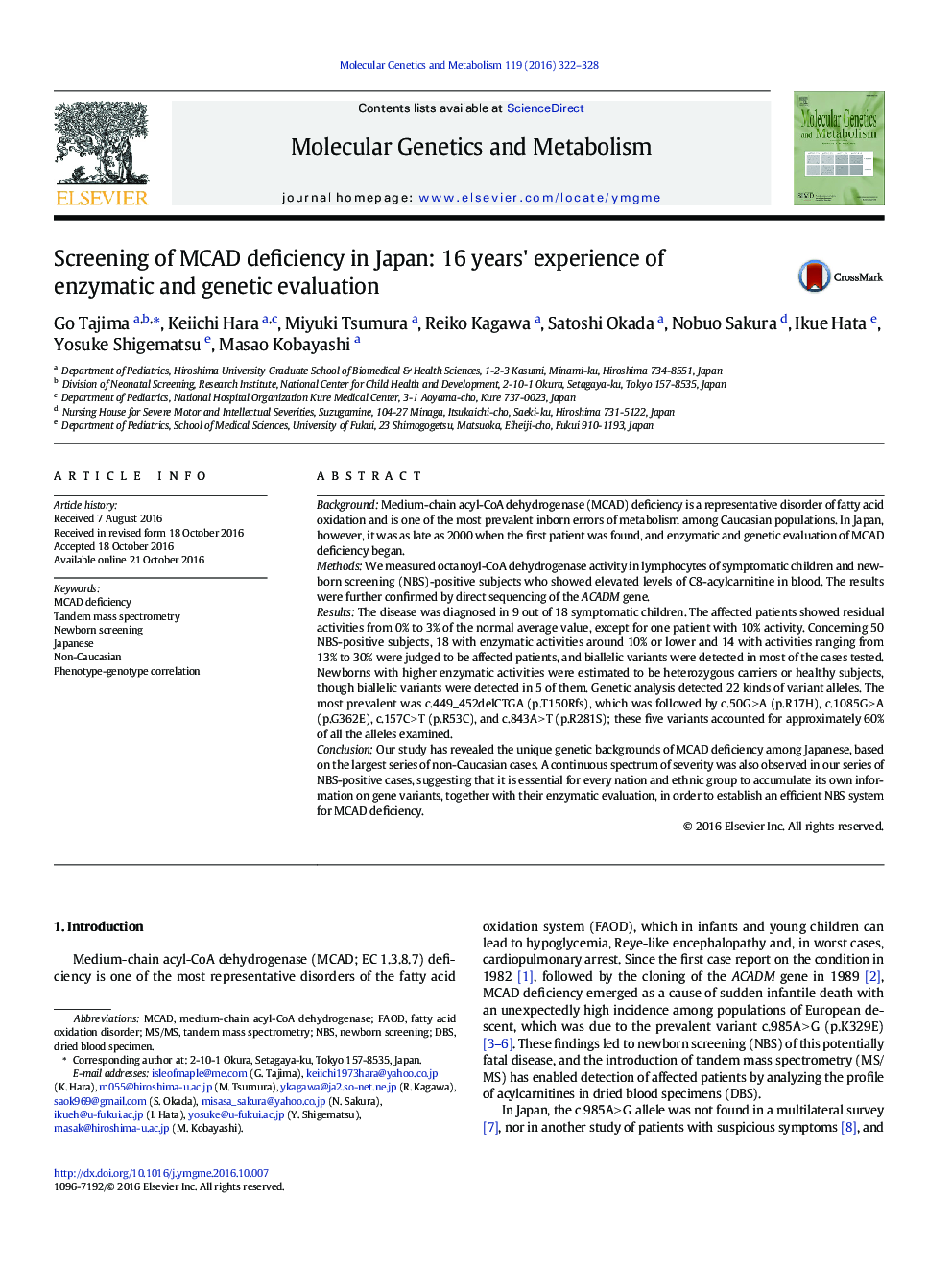| کد مقاله | کد نشریه | سال انتشار | مقاله انگلیسی | نسخه تمام متن |
|---|---|---|---|---|
| 5513974 | 1400690 | 2016 | 7 صفحه PDF | دانلود رایگان |

- Japanese patients with MCAD deficiency are described as the largest series of non-Caucasian cases.
- Genetic backgrounds of the patients were distinctive; their variants showed least overlap with those in Caucasian patients.
- Effects of each variant on the MCAD protein were characterized by enzymatic assay.
- A clear correlation was observed between the genotypes and clinical/biochemical findings.
BackgroundMedium-chain acyl-CoA dehydrogenase (MCAD) deficiency is a representative disorder of fatty acid oxidation and is one of the most prevalent inborn errors of metabolism among Caucasian populations. In Japan, however, it was as late as 2000 when the first patient was found, and enzymatic and genetic evaluation of MCAD deficiency began.MethodsWe measured octanoyl-CoA dehydrogenase activity in lymphocytes of symptomatic children and newborn screening (NBS)-positive subjects who showed elevated levels of C8-acylcarnitine in blood. The results were further confirmed by direct sequencing of the ACADM gene.ResultsThe disease was diagnosed in 9 out of 18 symptomatic children. The affected patients showed residual activities from 0% to 3% of the normal average value, except for one patient with 10% activity. Concerning 50 NBS-positive subjects, 18 with enzymatic activities around 10% or lower and 14 with activities ranging from 13% to 30% were judged to be affected patients, and biallelic variants were detected in most of the cases tested. Newborns with higher enzymatic activities were estimated to be heterozygous carriers or healthy subjects, though biallelic variants were detected in 5 of them. Genetic analysis detected 22 kinds of variant alleles. The most prevalent was c.449_452delCTGA (p.T150Rfs), which was followed by c.50GÂ >Â A (p.R17H), c.1085GÂ >Â A (p.G362E), c.157CÂ >Â T (p.R53C), and c.843AÂ >Â T (p.R281S); these five variants accounted for approximately 60% of all the alleles examined.ConclusionOur study has revealed the unique genetic backgrounds of MCAD deficiency among Japanese, based on the largest series of non-Caucasian cases. A continuous spectrum of severity was also observed in our series of NBS-positive cases, suggesting that it is essential for every nation and ethnic group to accumulate its own information on gene variants, together with their enzymatic evaluation, in order to establish an efficient NBS system for MCAD deficiency.
Journal: Molecular Genetics and Metabolism - Volume 119, Issue 4, December 2016, Pages 322-328